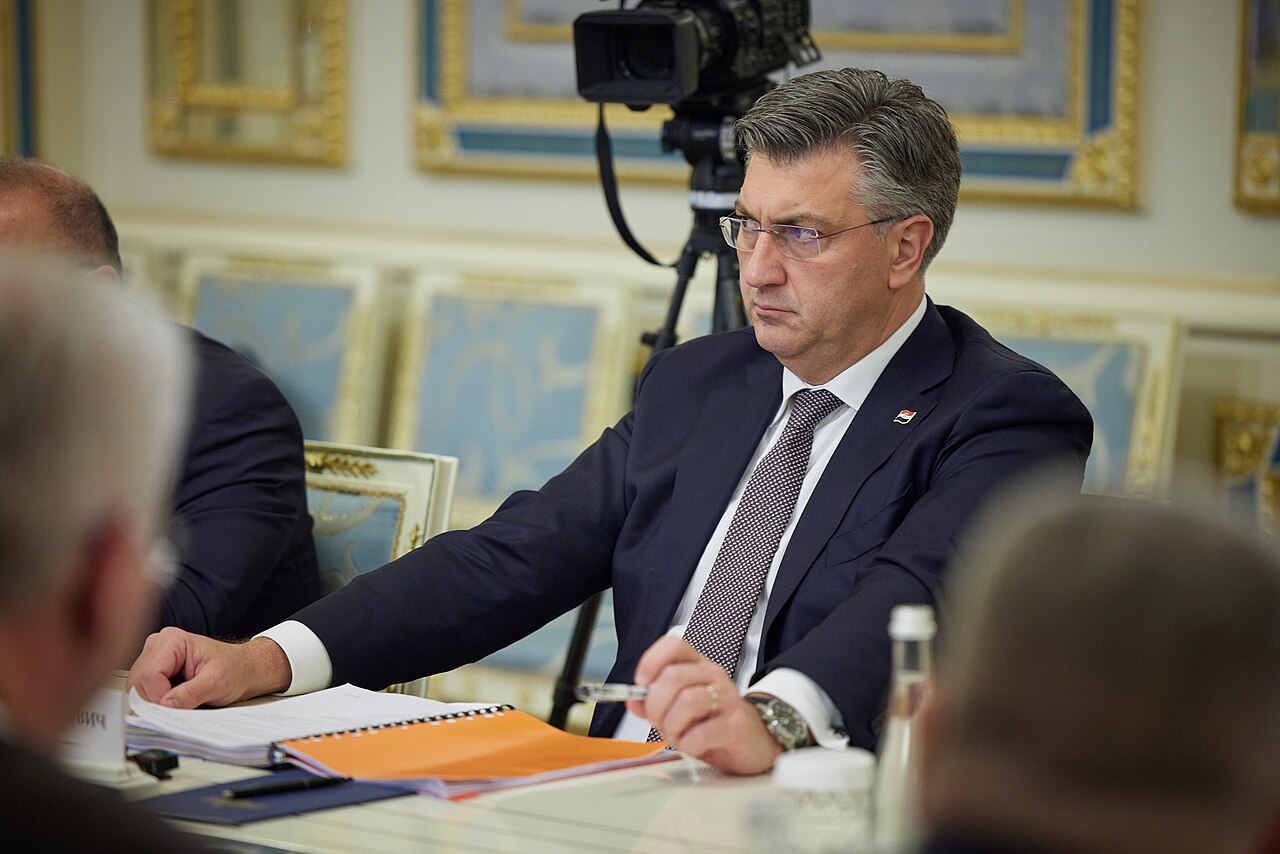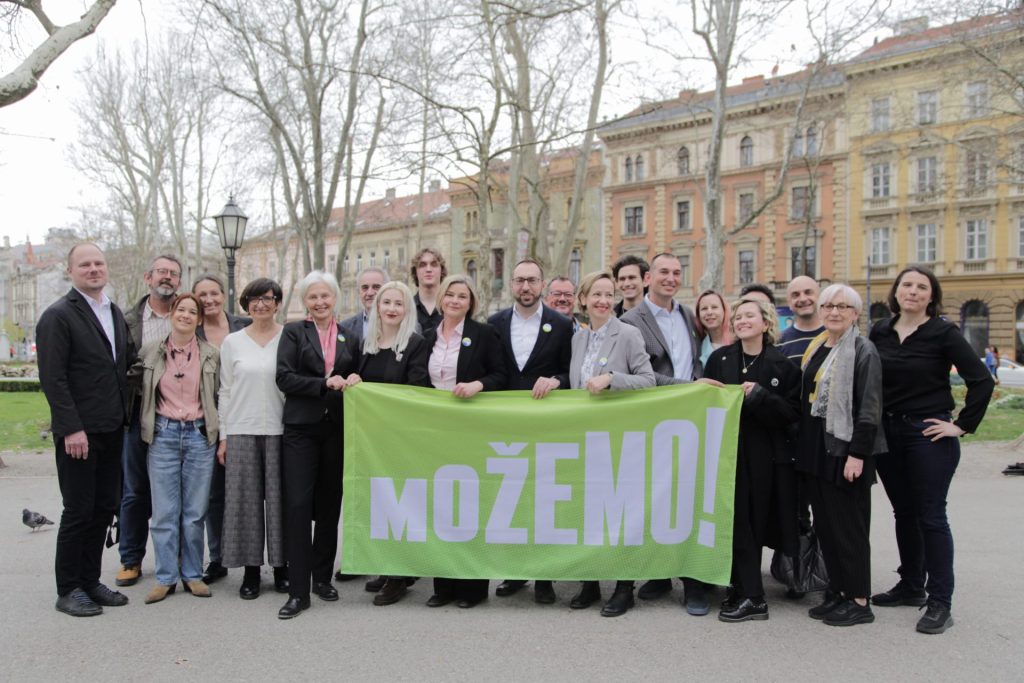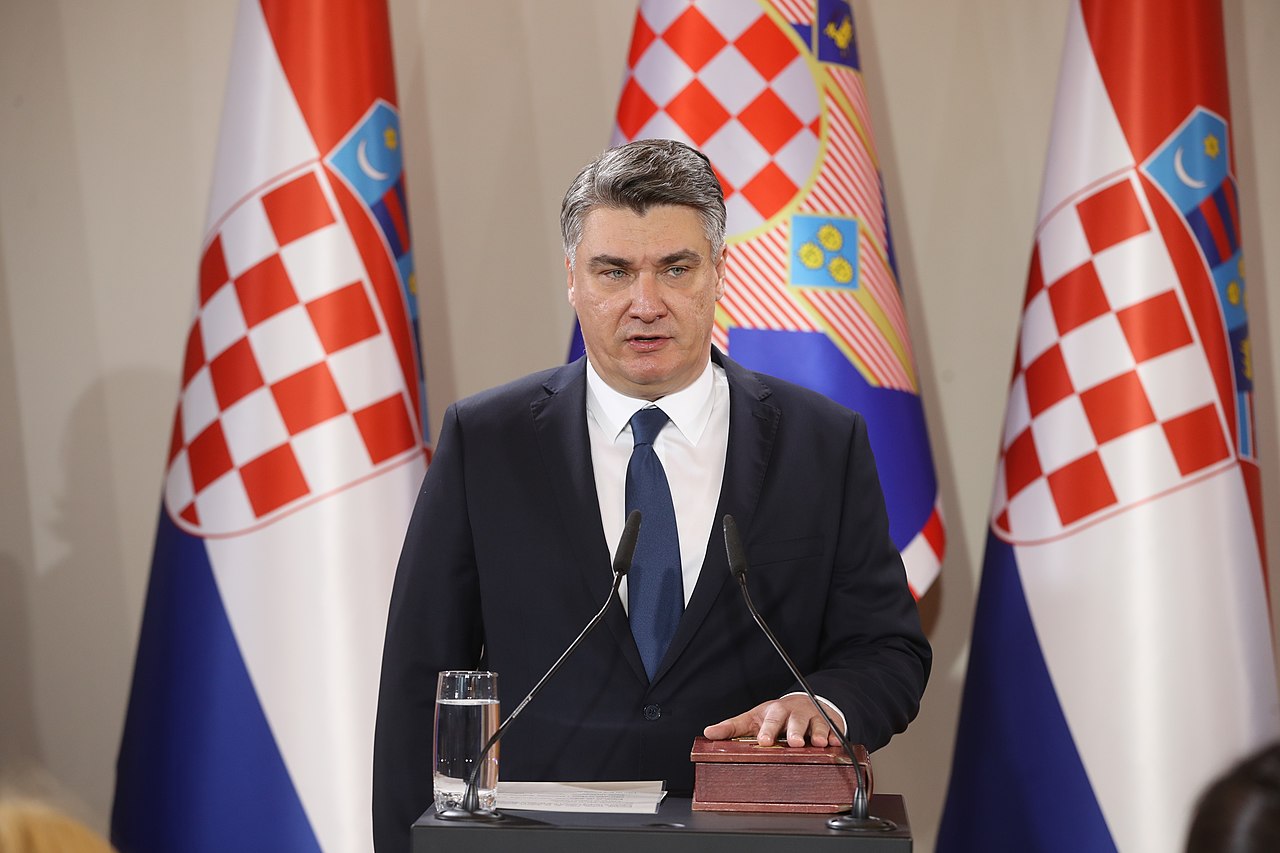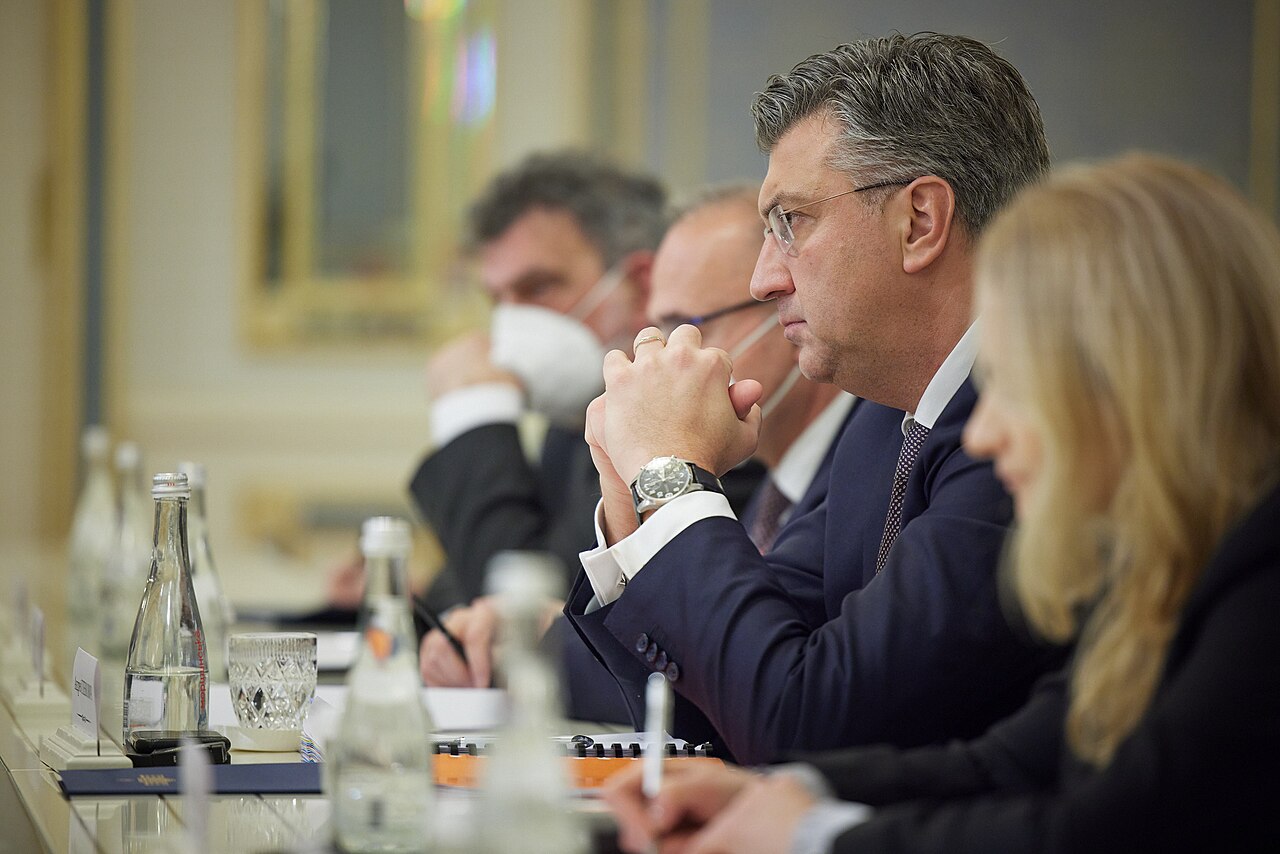Last month saw parliamentary elections in Croatia. They were held in the context of devouring inflation, corruption and scandals. Opposition parties from both the left and right of the political spectrum stormed into the campaign calling for anti-corruption measures and slogans against the ruling Croatian Democratic Union (HDZ). But no one offered a programme that could mobilise and unite the working class to fight against the shackles of capitalist wage slavery and worsening conditions.
The election caught the attention of the elites in Brussels, worried by the scenario opened by a defeat of the HDZ, the pro-EU ruling party. The results reveal a deadlock, with the HDZ emerging from the election weakened and unable to form a government, while the opposition also has no parliamentary majority. These election results are a reflection of a profound division in the Croatian ruling class, which is underpinning the crisis of Croatia’s parliamentary system, on the back of rising discontent and increased levels of class struggle.
The sharp increase in global debt, the long-term impact of the Quantitative Easing programmes, the COVID-19 crisis and the war in Ukraine have all stoked inflation, further driving down living conditions for workers. The cost of living crisis is hitting the working class everywhere. The French revolt related to the pension reforms, massive strikes that mobilised millions in Britain, smaller scale wild cat strikes organised all over Europe, the farmers’ rebellion are all indications that Europe is approaching perhaps the most unstable period since the 1970s. The Republic of Croatia, a small peripheral country on the Adriatic coast, is not exempt from these major events.
The Croatian Democratic Union
 With HDZ in power, Croatia has been one of the most unquestioning supporters of the Ukraine war / Image: President.gov.ua
With HDZ in power, Croatia has been one of the most unquestioning supporters of the Ukraine war / Image: President.gov.ua
In the disastrous breakup of Yugoslavia in 1991 Croatia was one of the countries that emerged from the dissolution of SFRJ (Social Federative Republic of Yugoslavia). Since then, the political party in power for almost 30 uninterrupted years has been the conservative Croatian Democratic Union (HDZ).
This right-wing party emerged victorious after the wars of privatisation in the 1990s. For decades it has been a loyal vassal of Brussels and the USA, following a path of European integration, which has now been completed with the adoption of the euro entry into the Schengen area. With HDZ in power, Croatia has been one of the most unquestioning supporters of the Ukraine war among the EU member states. So far, it has sent €181 million of military aid to Kiev. Such wars, led by the ruling class, are always paid for by the workers.
In the middle of major social unrest and growing inflation that haunts the European economy, the Republic of Croatia introduced the euro as its official currency on 1 January 2023. When the euro was introduced in neighbouring Slovenia in 2007, its introduction helped stabilise the national economy. But for Croatia today, with the war raging Ukraine stoking the crisis of the European economy, its introduction only stoked further inflation.
Over the last two years, the store prices of groceries rose by over 60 percent in the last two years. Meanwhile, the minimum wage in 2023 was just €550, although the estimated minimum for a decent life is as much as €1,600. Class struggle has therefore intensified across the country. We witnessed a record number of small and large (mostly wildcat) strikes in 2023. In the course of last year, Croatia experienced more strikes than in the last ten years combined.
In January 2024, the workers employed in the public sector threatened the government with a general strike. As a result, fearing political turmoil, the current prime minister, Andrej Plenković, was forced to increase the wages of the workers.
This dissatisfaction among the working class has forced him to make concessions several times over the past two years, particularly just prior to the elections, when the frustration of the people ignited. The net minimum wage was raised to €677, and the salaries of teachers to €1,300.
As a small, dependent capitalist nation, influenced above all by US and EU capital but also an increasingly strong influx of Russian capital, especially in the coastal areas, Croatia can expect to see the same turbulence and economic crisis which have already affected other parts of Europe.
Given the weak, subordinate role of the domestic bourgeoisie, the fate of all Balkan countries are tied to events in the dominant imperialist countries at the heart of European capitalism. In order to conceal the growing turmoil and contradictions below the surface, the ruling class needs to establish a government with a veneer of stability. For this reason, these elections were the most hotly anticipated in the last 20 years.
The ruling elites all across Europe awaited 17 April 2024, the date of the elections, with anxiety and fear. If the pro-European HDZ loses power, the chance will fall to the biggest opposition party, the Social Democratic Party (SDP) and current President Zoran Milanović to become prime minister.
Although the Presidency has little power in the Croatian Constitution, Zoran Milanović is on record actively undermining the EU, disregarding EU policies, and voicing his opposition towards support for the war in Ukraine in the media. If the SDP led by Zoran Milanović manages to form a government, this would place a question mark over Croatia’s traditionally pro-European position in the Balkans.
With Milanović as prime minister, Croatia’s political alignment could become more akin to that of Orban’s Hungary or Fico’s Slovakia, strengthening the bloc inside the EU that is against the Ukraine war. Additionally, Milanović is not so inclined to criticise Putin like many other European bourgeois politicians. He also tries to build a good relationship with Milorad Dodik, the president of the Republika Srpska in Bosnia and Herzegovina. In a de facto alliance with Dodik against the Muslim component of the fragile constitutional set-up imposed on Bosnia and Herzegovina by the Dayton Accords, Milanović – in the attempt to gain more independence by balancing the EU and US against Russia – is spreading dissatisfaction with the EU’s policy towards the Croatian minority in Bosnia and blocking the EU integration process in the Western Balkans. All this could further undermine European stability and pave the way for a stronger influence of Russian capital in the Balkans.
The highest turnout since the 2000 election
The left liberal opposition led by SDP and Možemo! (“We Can!”) managed to mobilise a record number of voters. Nevertheless, they were not victorious in the elections. As many as 62.5 percent of the 3.7 million registered voters came out, which is a significant increase compared to the voter turnout in 2020, which was just above 46 percent.
This is especially interesting considering the fact that turnout has only ever decreased since the first elections in 1990. In major cities, like Zagreb, Split and Rijeka, the turnout was even higher at almost 70 percent. Croatian society is waking up after the devastating defeat of the working class in the 1990s. The workers and youth are becoming politicised and are trying to use the methods available to them to change and improve their position in the narrow confines of the liberal democratic system.
However, the results – in terms of seats gained – actually favoured the HDZ ruling party, in part because of manipulation of the electoral colleges.
The results were as follows for the main parties: HDZ 61 seats; SDP 42 seats; DP (Domovinski pokret - Homeland movement) 14 seats; Most (The bridge) 11 seats; Možemo! 10 seats. Under the Croatian constitution, the minorities always receive 8 seats in the parliament and 76 seats out of the total 151 are needed to form a government.
In addition to having the highest turnout in 20 years, these elections were also characterised by several glaring disparities regarding the number of seats won per party. The liberal Možemo and the SDP won more votes combined than HDZ but received 9 fewer seats. In addition to the skillful manipulation of the electoral colleges and votes, these elections showed how the electoral system is rigged in favour of larger parties and coalitions. The threshold to elect representatives in the parliament is one of the highest in Europe, with even more than 5 percent of the vote needed. Votes from colleges in larger cities in particular, where the working class incidentally is concentrated, are heavily penalised. One vote from rural Slavonia, for instance, is worth as much as five votes cast in Zagreb.
This undemocratic electoral system reflects the weakness of the Croatian capitalists, who don’t feel confident they can retain power if a true proportional representation system was in place, and the current radicalisation of the class struggle leads to the rise of a working class alternative.
 The liberal Možemo and the SDP won more votes combined than HDZ but received 9 fewer seats / Image: Možemo, Wikimedia Commons
The liberal Možemo and the SDP won more votes combined than HDZ but received 9 fewer seats / Image: Možemo, Wikimedia Commons
The way the electoral college is drawn up has an obvious class motive. It favours more right-wing conservative voters from rural areas such as Slavonia or Dalmatia that vote for HDZ, Homeland movement or Most, while the left-wing votes from the bigger cities are marginalised. The former is precisely the layer on which the ruling class relies on in peaceful times. It’s not by chance that the bourgeois Christian Democratic and right-wing parties throughout Europe have deepest roots in the countryside where in ‘normal’ times life is quiet and peaceful and tradition runs deep.
The results in Istria with Rijeka, Zagorje and Međimurje didn’t show support for the right wing parties while on the other hand Slavonia remained the stronghold of the right wing, with a swing towards the extreme right-wing Homeland Movement.
Slavonia was devastated after the war in the 1990s. Osijek, the biggest Slavonian city, is still haunted by the ghosts of the war. It is not rare to find bullet holes in the unrenovated buildings intentionally neglected by the ruling class because the poverty of that region is often used as an electoral joker card. Prior to every election, HDZ is generous with its promises to the poor, as it attempts to buy votes. Now this tactic has been less effective.
As in the rest of Europe, the crisis of capitalism is paid off by the working class but also by the petty-bourgeois small farmers. When they feel that they are wrongly penalised, in the absence of a fighting left-wing alternative, they can become prone to the influence of the far right, who use all sorts of conspiracy theories to look anti-establishment.
The environmental norms introduced by the EU come at a heavy cost and represent an economic burden for small farmers. The far right thus mixes climate change denial with anti-EU and anti-establishment rhetoric. However, the impact of climate change affects the small farmers on a much greater level than the rest of society, and this is contributing to their unrest, as they feel let down by the state. In July 2023, a supercell thunderstorm in the northern Balkans destroyed the small farmers’ crops and caused serious damage especially in the countryside.
Noticing the influence of the extreme right in this segment of the population, some on the left have drawn the wrong conclusion that small farmers are an inherently reactionary class and that we, as communist, do not have anything to offer to them. However, the opposite is true.
Small farmers can only be offered a decent life if the working class takes power and control of the state because only then it is possible to expropriate the large banks, multinational companies, conglomerates, and big agricultural business. A democratic planned economy that produces for our needs, not for profit, in complete harmony with the environment taking into account the severe impact of climate change, can offer much better conditions for the small farmers than private banks and supermarkets that exploit them for profit.
Weakening of the right wing
Despite the aggressive election campaign by the HDZ, the election results didn’t show significant gains for the right. In fact, there was a slight decline. In spite of the relative victory of HDZ with 61 seats, the right-wing parties also won another 11 seats for Most and 14 seats for the Homeland Movement. But a total 86 seats by the right wing is a decrease compared to the number they achieved in 2020, when they took 90 seats. But without a majority of seats, HDZ are unable to form a government without a coalition.
The coalition which is largely being talked about in the media is one between HDZ and the Homeland Movement, which emerged from a split in HDZ between the more pro-European centrist members of the party around the prime minister Andrej Plenković and the more nationalist and openly racist, especially serbo-phobic wing of the party around Ivan Penava.
The Homeland Movement is linked to the Croatian bourgeois gas tycoon, Pavao Vujnovac, one of the big shareholders of the largest Balkan agribusiness conglomerate, Agrokor. Vujnovac is also linked to prime minister Plenković. A scandal erupted in July 2023 when the press revealed that HEP (the Croatian electricity company) was selling extremely cheap gas to the capitalists, but at much lower prices to Pavao Vujnovac’s company.
The Homeland Movement focused their political campaign against the Serbian national minority party, the Independent Democratic Serbian Party, headed by Milorad Pupovac. If the Homeland Movement enters in a coalition with HDZ, this government will only intensify the already existing ethnic tensions between the Croatian majority and the oppressed, much smaller Serbian minority, which is already in a process of forced ethnic assimilation ever since the war in the 1990s. It’s no secret that the leader of the Homeland Movement and mayor of Vukovar Ivan Penava mobilised gangs in Vukovar in order to destroy the cyrillic plaques that were placed there in 2013 on the initiative of then prime minister Zoran Milanović.
The revolutionary communists of Marxist organisation Crveni will fight such a government of the extreme right wing from day one. Should it come into existence, we could expect rising attacks on the Serbian minority but also increasing tensions against the immigrant workers from Asia and Africa now constituting a significant minority in Croatia. We could see bans imposed on abortion, the prohibition of communist symbols like in Poland or Hungary, and the continuation of the most blatant historical revisionism regarding the partisans and the role of the Communist Party of Yugoslavia during the Second World War.
A defeat of the left
Despite the relatively successful mobilisation of voters, at least in larger cities, the left liberal opposition failed to win the elections.
All of the opposition parties previously mentioned, the right and left-wing alike, focused much of their energy in the election campaign on the corruption and scandals of the ruling HDZ, instead of presenting anything remotely resembling a positive programme for solving the needs of the working people. This strategy proved to be extremely inadequate and actually helped prevent the ruling HDZ from being held accountable for its crimes.
The opposition’s divided participation in the election, without a coalition, also contributed to their defeat, given that the electoral system favours coalitions. On the wave of euphoria for having won the mayoral elections in Zagreb in 2021, the Možemo! party decided to use these elections to test their own strength, which led to disappointment in the rest of the opposition. The popularity of the SDP was also questionable, especially after the announcement by Milanović, the current president of the Republic, that he was planning to run for prime minister without resigning from his post.
For truly mass mobilisation we need a clear programme aimed at the needs of the working class. Messages like ‘overthrow the HDZ’ and ‘fight corruption’ do not connect with those barely surviving on the €677 minimum wage, or by those who had to work on election day itself, despite it being a national holiday.
Even the Radnička Fronta (RF, Worker’s Front), the only parliamentary party claiming to be socialist, lacked a clear political programme that adequately addressed the urgent needs of the working class, who constitute by far the majority of the population. RF is demanding measures such as the return of the ‘Law on Investigating the Origin of Property and Confiscating Illegally Acquired Property’, abolished in 1990, which would be aimed against illegal acquisition of state owned property in the wars of the 1990s by various warmongers and tycoons. It is also calling for taxing the rich. While these or similar demands may gain popularity, they lose their credibility when the strategy to carry them out is a compromise with the liberal wing of the capitalist class.
Similar positions are currently dominant in the left-wing reformist scene of the European left (Podemos, Die Linke) and have been adopted even in the Eastern bloc. However, these political parties, like RF in Croatia, all suffered defeats in recent elections for compromising with the liberal wing of the capitalist class.
 The Constitutional Court has banned Zoran Milanović from forming a minority government with himself as prime minister / Image: Social Democratic Party of Croatia, Wikimedia Commons
The Constitutional Court has banned Zoran Milanović from forming a minority government with himself as prime minister / Image: Social Democratic Party of Croatia, Wikimedia Commons
RF even went a step further in compromising itself. Not only have they accepted the dominant idea that all that was necessary to resolve all problems is to overthrow the HDZ regime, but they actively campaigned for the return of quotas for foreign workers by launching a xenophobic petition and spreading racism. After years of parliamentary opportunism, the compromises of this self-proclaimed ‘socialist’ party with right-wing reformist ideas are leading to its collapse.
After it became clear that no one had the majority in parliament needed for the formation of a new government, the elections were followed by post-election theatrics in which different political parties engaged in horsetrading for seats in the parliament, quite typical of bourgeois democracy. While the HDZ is accused of corruption and crime, the remaining opposition parties are trying to portray themselves as the saviours of democracy and fighters against corruption. Despite their political disagreements, they call for a broad coalition in which they will overcome their differences. They even proposed the formation of a minority government but cannot seem to agree on who will be the new prime minister. At the time of writing, Croatia still doesn’t have a government and negotiations are ongoing.
Meanwhile, the Constitutional Court has banned Zoran Milanović from forming a minority government with himself as prime minister. It is becoming clear that the deadlock may soon force new elections, where the political parties of the opposition will once again demonstrate their disconnect with the masses searching for an outlet.
Growing radicalisation finds no political representation
Neither the SDP nor Možemo! nor Milanović showed even the slightest interest in resolving the problems which are faced by the majority of the people, the working class. In fact, during his mandate as prime minister from 2011 to 2015, Milanović attacked the working class and sided openly with the interests of Croatian and European capital, listening to the directives from Brussels, in much the same way as the ruling HDZ has done. Možemo!, like the German Green party currently in government, doesn’t offer a class perspective either and, apart from invoking anti-corruption measures, shows no meaningful difference with HDZ in foreign policy, such as the war in Ukraine. Nor do they offer any solution to the impact of the world capitalist crisis on Croatia.
A growing part of the working class is slowly but surely realising the limitations of parliamentary elections, and will be forced towards other methods of struggle. The increasing politicisation of the masses expressed itself in the much larger voter turnout in these elections. Now, it will be pushed to eventually take on a new form.
Greater frictions and intensification of class struggle all over Croatia are to be expected in the coming period. Whoever ends up in the new government will be unable to stop the current crisis of capitalism, especially considering the utmost dependent character of the Republic of Croatia in relation to the rest of the EU.
Faced with crisis after crisis, governments are proving incapable of implementing reforms, and each gives way to the interests of the ruling class. The workers will look increasingly to class struggle methods to solve their problems, until a political party with a clear socialist programme is formed and draws in their support. It is more necessary than ever to build a communist alternative that unites the most advanced layers of the working class and the youth which are active in mass movements and everyday agitation in order to bring communist ideas more closer to the broader layers of the working class.
Join the Revolutionary Communists to help us in this task!

